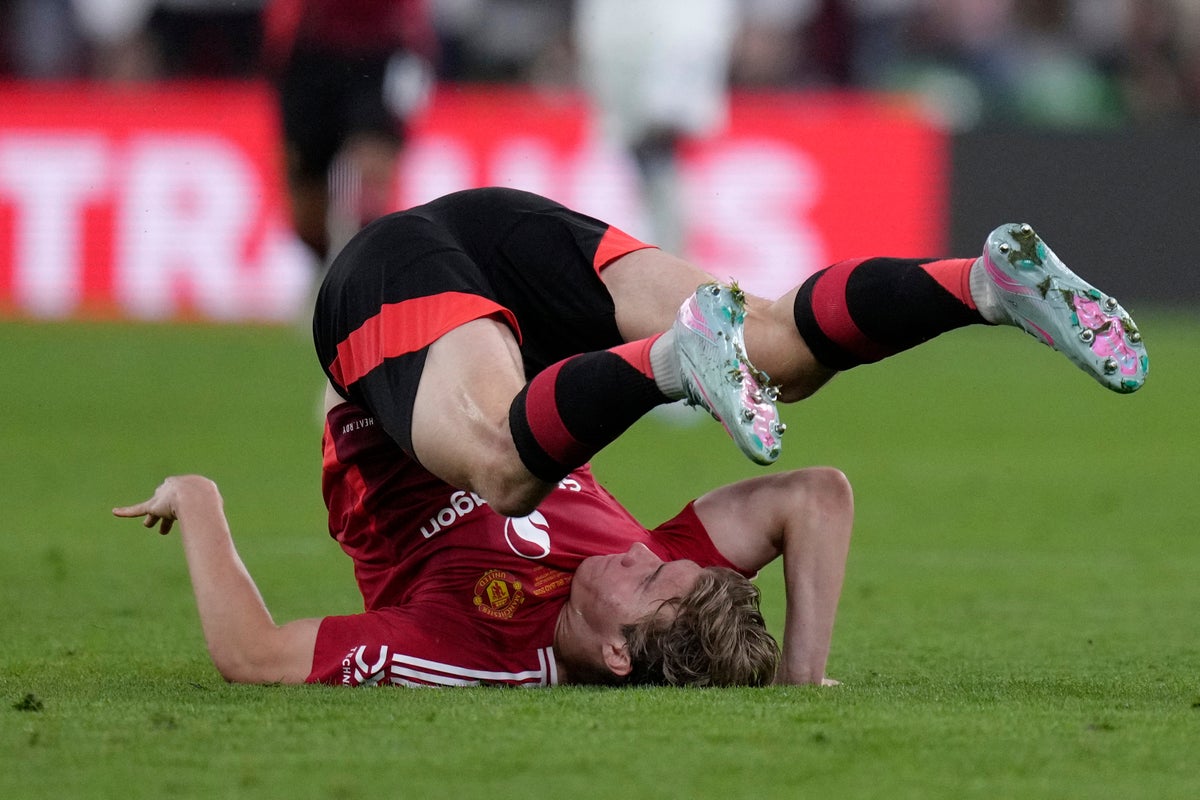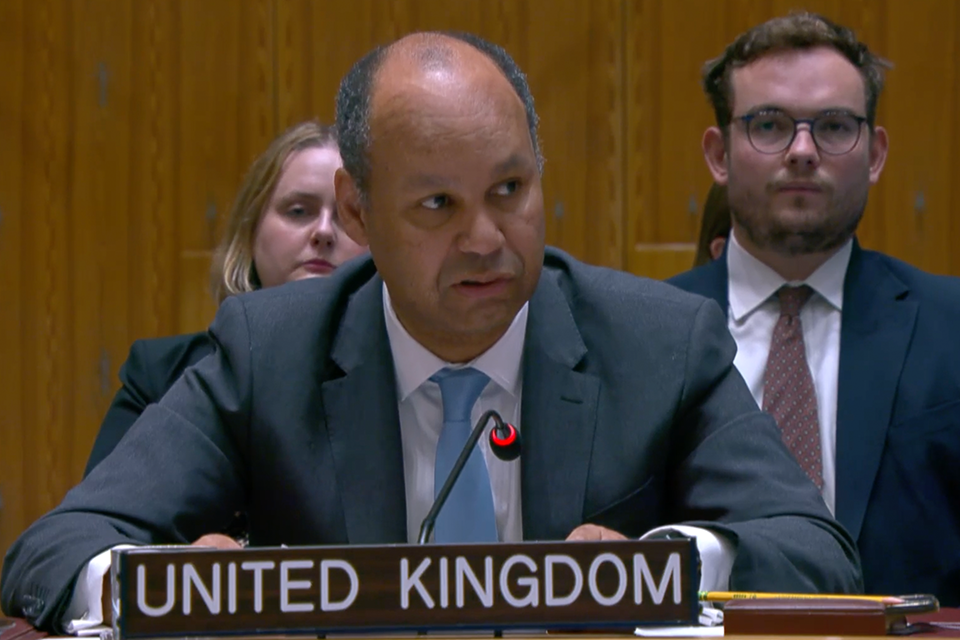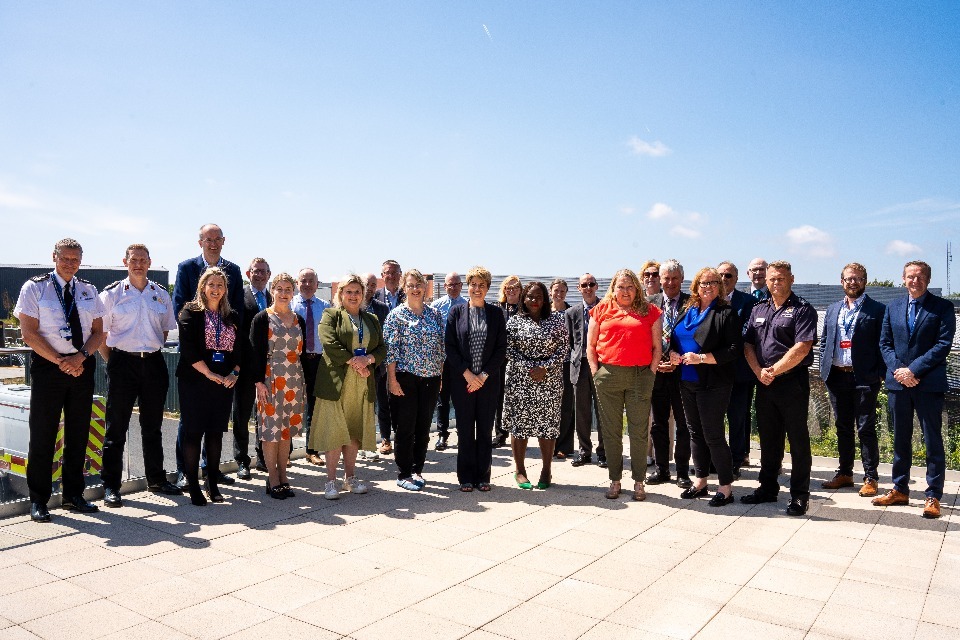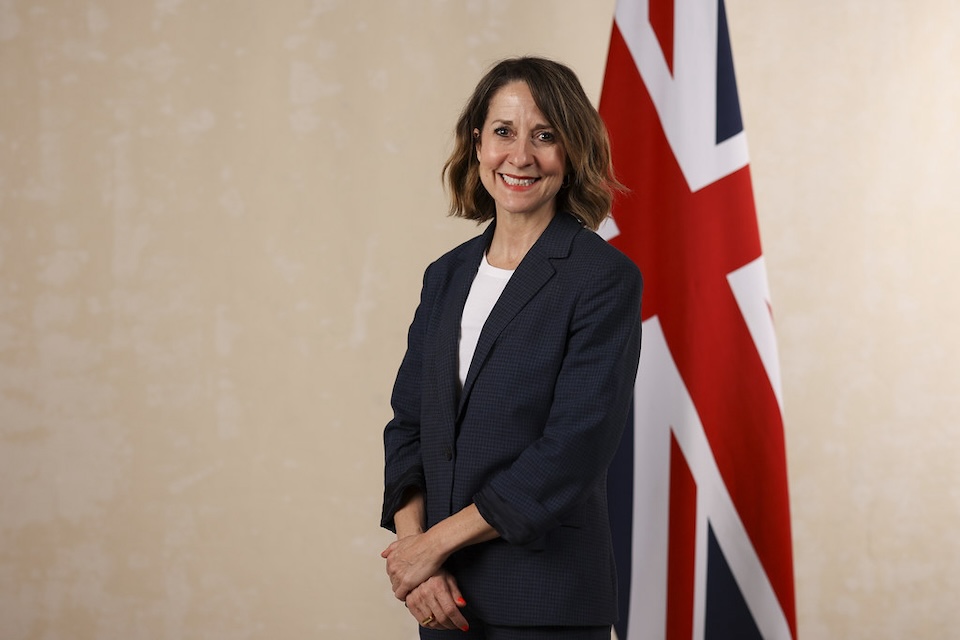Thank you, Madame Chair. When Russia initiated its war of aggression on Ukraine on 24 February 2022, there was no doubt about the illegality of this undertaking. The full-scale invasion contravened all the underpinning documents of this organisation to which we are all signatories and violates international law. The responsibility for this illegal military invasion absolutely sits with Russia. However, Russia continues to blame others for prolonging the conflict that they started and continues to accuse others of seeking to ‘gain military superiority’ in a conflict that they initiated.
The UK’s continued and unwavering support to Ukraine is not about achieving military superiority but about defending a sovereign nation under attack. The UK, along with our allies, has consistently emphasised that military aid is in support of Ukraine’s self-defence and aimed at helping Ukraine uphold its territorial integrity in accordance with international law. Prime Minister Keir Starmer recently reiterated that the UK’s goal is peace, not escalation.
In contrast, the Russian Federation insist that they remain committed to a negotiated solution, but their actions say otherwise. While President Zelenskyy travelled to Istanbul on 15th May to attend peace talks, supported by the USA and hosted by Türkiye, in good faith, President Putin refused to the same. On the same day President Putin dodged the possibility for constructive negotiations, his Armed Forces launched 112 drones at Ukrainian cities, killing and injuring civilians. On 17th May, the UN Human Rights Monitoring Mission confirmed that a Russian drone hit a bus evacuating civilians in Ukraine’s Sumy region, killing nine non-combatants. On 18th May, Russia launched 273 one-way attack (OWA) drones against multiple targets in Kyiv, Dnipropetrovsk and Donetsk oblasts. This is reportedly the largest wave of uncrewed aerial systems Russia has launched into Ukraine – surpassing the 267 drones launched on 23rd February 2025.
This is not evidence of a genuine commitment to peaceful resolution. This is fundamentally military escalation and an increase in the indiscriminate targeting of civilians. As a result, the UK is further increasing sanctions on Russia as President Putin further intensifies these strikes on Ukrainian civilians. Yesterday we announced the sanctioning of 100 targets across Russian energy, and financial services sectors, the Russian military industrial complex and its third country suppliers, and malign actors involved in democratic interference and Russia’s information war on Ukraine.
At the opening session of the FSC on 14th May, The Russian delegation spoke of the ‘need to increase the effectiveness of the FSC’. We couldn’t agree more. The UK supports the opportunity to pursue the politico-military advantages of the FSC, to encourage enhanced implementation of arms control, and of confidence- and security-building measures. But this is impossible whilst Russia continues to violate the principles of the Helsinki Final Act, and broader international law. The UK also agrees with another comment from Russia’s opening address last week that ‘the FSC is not a place for hate speech and incitement to confrontation’. And we would encourage Russia to refrain from disrespectful language in the forum, particularly towards Ukraine, and of spreading disinformation about the intentions of the UK and our allies. We look forward to a constructive trimester.
The UK will continue to play a leading role in accelerating work on Ukraine’s future security, and we strongly urge Russia to commit to an immediate, complete and unconditional 30-day ceasefire to buy the space and conditions for further negotiations. Europe is ready if President Putin chooses the path of peace. Thank you, Madame Chair.







